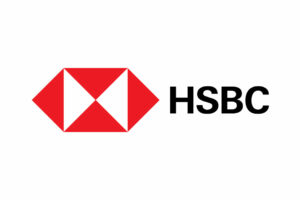




January Economic Update: Growth slows, prices rise
 DOWNLOAD
DOWNLOAD

Inflation Update: Up, up, and away?
 DOWNLOAD
DOWNLOAD

Quarterly Economic Growth Release: Growth takes on a slower pace
 DOWNLOAD
DOWNLOAD


Businesses see PH as key entry to Southeast Asia

Businesses see the Philippines as a key target for entering the Southeast Asian market due to competitive wages and the opportunity to develop and test new products and solutions, a study issued by HSBC Bank plc said.
Of the 3,509 businesses surveyed in the study, 21% of those without a current Philippine presence said they plan to enter the market over the next two years.
The Philippines ranked third in Southeast Asia, along with Indonesia and Malaysia, at 25%.
Meanwhile, 19% of those already active in the Philippines said they plan to prioritize expanding their operations in the country over the next two years.
The businesses also expect sales in the region to grow by 23.2% over the next 12 months, higher than the 20.1% forecast from last year’s survey.
“These findings confirm what we have been seeing from our own customers: that businesses around the world are increasingly confident about scaling up in Southeast Asia, especially the Philippines,” HSBC Philippines President and Chief Executive Officer Sandeep Uppal said in a statement.
“We are on fertile ground and as excited as our clients about the growth prospects of the Philippines and in Southeast Asia and focused on connecting local and international businesses in this dynamic region to opportunities across the globe,” he added.
“Competitive wage prices and the opportunity to develop and test new products and solutions ranked equally as the key drivers for business expansion, with 28% of firms with operations in the Philippines selecting each attribute,” the study said.
The foreign companies also cited a supportive government and regulatory environment (27%), increasing domestic consumer income/wealth (27%), and growing digital economy (26%).
However, only 29% of the firms with exposure in the country “expect substantially increased economic growth through technology in the coming 10 years” due to a lack of skilled personnel to drive implementation.
The study also showed that 31% of the surveyed firms saw macro-economic issues and cultural differences as the top challenges in conducting business.
The report mentioned economic challenges such as inflation and high interest rates and cultural issues such as language and ways of doing business.
“The top sustainability concerns for businesses operating in the Philippines remain unchanged from our 2022 survey, with 40% selecting tackling climate change and improving human rights as the most important issues to address,” HSBC said.
Less than half, or 45% of businesses with operations in the Philippines are reviewing the sustainability credentials of their suppliers, making this the top priority on the sustainability agenda.
Both nature-positive supply chains and reviewing the use of energy, plastic and water resources (43%) are also a focus of the respondents.
In terms of policy, 27% of the respondents said there is a lack of subsidies or government support, while 28% said new regulations on carbon reduction could impact their business.
“Our survey demonstrates that international businesses are accelerating their growth in the ASEAN region. To do so, they are embracing M&A (mergers and acquisition) activity, expanding into new markets, and investing heavily in technological innovation. The Philippines appeals to international businesses on both the supply and demand side making it one of the top new destinations in the region for those planning market expansion,” the report said.
The study was conducted from July 25 to Aug. 2, surveying firms from major markets including China, India, the United Kingdom, France, Germany, the US, Australia, Hong Kong, the United Arab Emirates, Saudi Arabia, Bahrain, Qatar, Oman, and Kuwait. — Aaron Michael C. Sy
This article originally appeared on bworldonline.com





 By BusinessWorld
By BusinessWorld